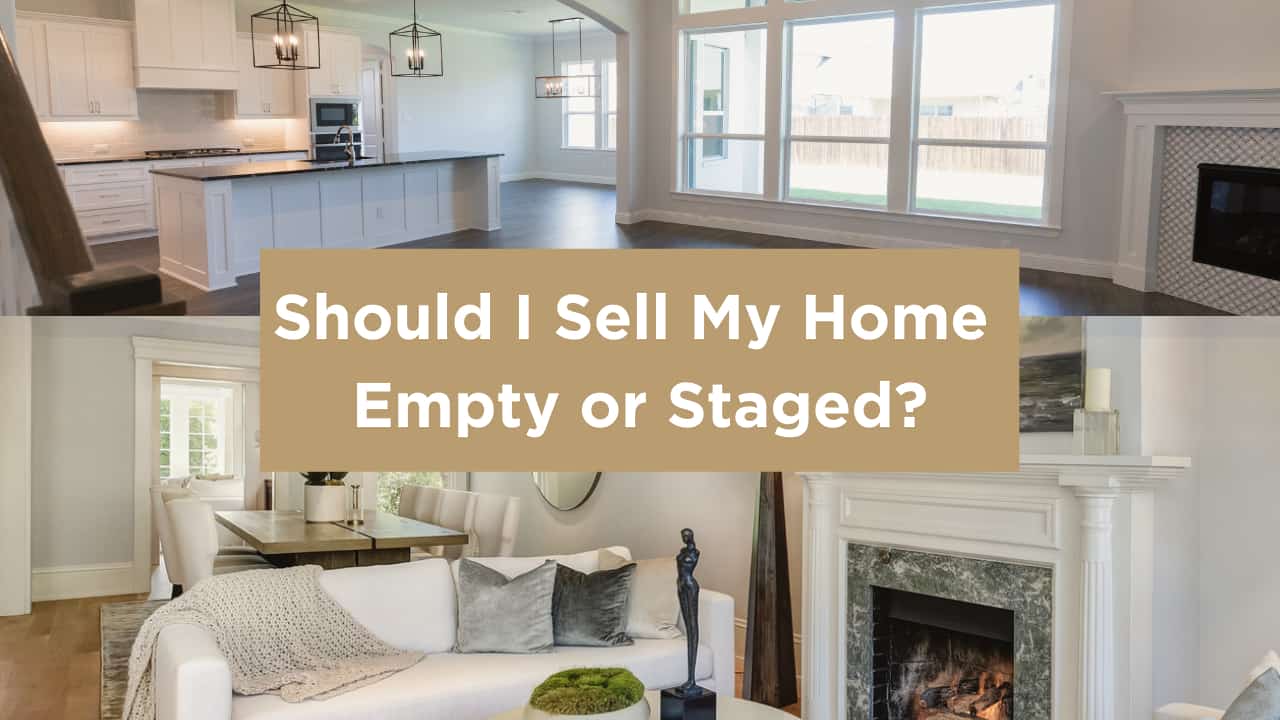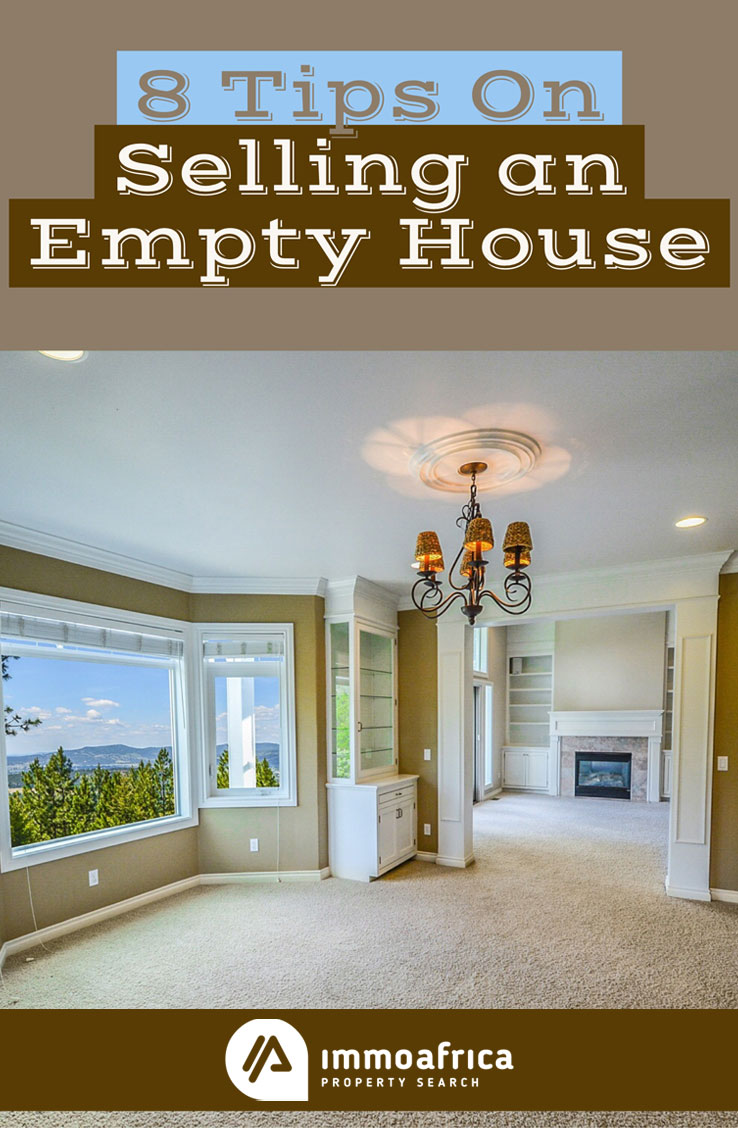Selling a residential property often presents homeowners with a multitude of decisions to make, one of which is whether or not to empty the house prior to sale. It is an aspect that can significantly influence both the perception and value of the property in the eyes of potential buyers. The question is frequently raised due to the complexity and multifaceted nature of its implications, ranging from aesthetics and presentation to logistics and costs. A decision in this regard requires careful consideration of various factors as it could potentially impact the overall selling process.
This article delves into an in-depth analysis of this specific query – Should one empty their house before selling? It aims at providing a comprehensive guide for homeowners by examining both advantages and disadvantages associated with each course of action. To do so, it will critically analyze elements such as property presentation, buyer perception, as well as weigh up logistical considerations. By understanding these aspects thoroughly, readers will be better equipped to make decisions that align with their unique circumstances and optimize outcomes related to the sale of their property.
Understanding the Process
Understanding the process of home selling necessitates an evaluation of whether to empty the property prior to its listing, a decision that can significantly impact both prospective buyers’ perceptions and the final sale price. The home selling process is multifaceted and involves numerous factors including market conditions, sell my house fast Fort Worth property location, and timing. Nonetheless, the presentation of the property remains crucial throughout this procedure. One aspect relevant to this discussion is preparing a home for sale checklist, which often includes tasks such as cleaning, decluttering, staging or possibly leaving the house vacant.
The benefits of emptying a house before selling are manifold. A vacant house allows potential buyers to envision themselves within it more easily without personal items distracting them from assessing its features critically. It also facilitates ease in showing times since realtors do not have to navigate around homeowners’ schedules. Moreover, selling a vacant house has certain pros such as decreased liability risks and no need for moving out swiftly after closing the deal. However, there are cons associated with this approach too; for instance, a completely empty space may appear cold or uninviting making it difficult for buyers to visualize living there.
Sell house fast tips often emphasize creating an appealing environment for potential buyers – one that showcases a property’s best attributes while minimizing any perceived negatives. Whether this is achieved better with a furnished or unfurnished space depends largely on individual circumstances and preferences. After careful consideration of these various aspects in Should I Empty My House Before Selling, sellers can make informed decisions about how best to present their properties for optimal results during negotiations with prospective buyers. This leads into our next discussion: weighing the advantages against potential drawbacks when making a choice about vacating premises before sales transactions commence.
Weighing the Pros
Examining the advantages, it becomes evident that vacating a property prior to its sell my house fast Texas sale can potentially present it in a more appealing light to prospective buyers. The debate of empty vs furnished homes for sale often hinges on the factor of effective house presentation. An unoccupied property allows potential buyers to visualize their own belongings and lifestyle within the space without distraction, which could potentially contribute to making a quicker decision about purchasing. Furthermore, an empty home may seem larger and more spacious, thereby maximizing home value in the eyes of interested parties.
In addition to effective house presentation, another aspect where selling an empty house may prove beneficial lies in logistical convenience. Vacant properties are usually easier and more flexible for real estate agents to show at short notice since there are no occupants’ schedules or personal belongings to work around. This increased accessibility might aid in getting numerous viewings quickly, potentially helping one sell a house faster than if it were occupied or furnished.
However advantageous selling an empty house might appear initially, it is highly recommended that sellers weigh these benefits against any potential drawbacks as well before making such decisions – an issue which will be addressed further in the subsequent section. Each situation is unique and what works best depends on various factors including market conditions, location of the property among others. Thus while home selling best practices do suggest certain general guidelines, they are not one-size-fits-all solutions but rather provide a framework within which individual circumstances must be considered carefully.
Considering the Cons
Despite the aforementioned advantages, it is also crucial to acknowledge the potential drawbacks related to marketing a vacant property. One of these relates directly to home staging tips. A vacant house may lack appeal compared to staged properties that provide buyers with a visual guide for how they might arrange and use different spaces. Decluttering for home selling is essential, but an entirely empty house can appear stark and uninviting. Without furniture and decor, any imperfections within the property could be highlighted, potentially deterring prospective buyers.

Another disadvantage pertains to quick home sale strategies. An unfurnished property may remain on the market longer than its counterparts as it can be challenging for potential buyers to visualize themselves living in such a space. This particular downside becomes even more significant when considering market trends in house selling where furnished properties tend to sell quicker than vacant ones. Moreover, an empty residence may erroneously signal desperation or urgency on behalf of the seller which could negatively impact negotiations or final sale price.
In terms of attracting buyers with home design, having no furnishings or decor elements can make it more difficult for individuals viewing the property online or during physical walkthroughs to appreciate its unique features and envision their life within those walls. It’s also worth noting that while an empty space provides room for imagination, it doesn’t necessarily aid in making a connection between buyer and property – something which staging often effectively accomplishes. As this analysis shifts towards focusing on ‘staging and presentation’, one must consider how these factors contribute significantly towards enhancing a property’s overall allure.
Staging and Presentation
Highlighting the importance of staging and presentation, it becomes apparent that these elements play a significant role in captivating potential buyers, enabling them to visualize their future lives within the property. Staging involves arranging furniture and decor to showcase the home’s best features and possibilities. It fosters an atmosphere of warmth and homeliness, making it easier for prospective buyers to imagine themselves residing in the space. A well-staged house can depict a lifestyle that appeals to potential buyers, increasing its attractiveness.

Effective staging extends beyond mere aesthetics; it also serves as a strategic marketing tool designed to highlight a property’s strengths while downplaying any possible weaknesses. This could include using certain colours or light arrangements that make rooms seem larger or more inviting than they might otherwise appear when empty. Additionally, staging allows sellers to manipulate spaces creatively: for instance, turning an awkward corner into a cosy reading nook or transforming an unused room into an office space – thus maximising every square foot of the house.
Despite leaving some personal belongings behind after moving out may seem inconvenient for some sellers, it is crucial to remember how significantly this can influence prospective buyers’ perception of the property. An empty house may not only feel impersonal but might also make it challenging for visitors to envision how they would use each room. Therefore, considering proper staging before selling could be instrumental in attracting higher bids and faster sales transactions. The next section will delve deeper into understanding how this impacts potential buyers’ decision-making process during property purchase considerations.
Impact on Potential Buyers
Understanding the influence of staging on prospective buyers proves essential as it directly impacts their perception of the property and subsequently, their willingness to invest in it. The presence or absence of furniture and decor significantly affects how potential buyers visualize themselves living within the space. An empty house can often seem cold and uninviting, potentially undermining its appeal. On the other hand, a well-furnished and effectively staged home can create a warm, welcoming atmosphere that encourages buyers to imagine themselves residing there.
The impact on potential buyers is multifaceted and includes various elements:
- Emotional Connection: A well-staged home helps create an emotional connection with potential buyers by allowing them to envision a desirable lifestyle within the property.
- Perceived Value: Effective staging can enhance perceived value by showcasing the property’s best features while minimizing any flaws.
- Spatial Perception: Furniture placement influences spatial perception; without it, room sizes may be misjudged, making spaces appear smaller than they are.
However, assessing these factors should not overshadow practical considerations surrounding selling a property with existing furnishings or completely emptying it before selling. It is crucial to remember that every decision made will have associated costs and could introduce logistical challenges into the process. This notion extends from moving expenses for large furniture pieces to storage fees if items need temporary housing during sales negotiations or renovations. Henceforth, careful thought must be given not only to how presentation influences buyer interest but also to monetary implications and logistics management involved in preparing properties for sale.
Costs and Logistics

Delving into the financial and logistical aspects of preparing a property for sale, it becomes apparent that these factors play an equally significant role alongside staging in enhancing buyer appeal. The choice to fully empty a home prior to its sale often stems from an intersection of both economic considerations and practical convenience. On one hand, the costs associated with moving out entirely, including professional movers or storage unit fees, are factors that sellers must contemplate. Additionally, there is the potential expense of any necessary repairs or improvements which may be more easily identified and addressed in an empty property. These expenditures must be weighed against the potential benefit – would an empty house sell faster or at a higher price?
On another note, logistics can also make this decision complex. Emptying a house before selling requires planning and coordination. This involves scheduling movers to transport furniture and belongings either to a new residence or storage facility while simultaneously ensuring that all personal items are cleared out before prospective buyers start visiting. In addition, there can be timing issues if the seller is buying another home concurrently; they may need somewhere to stay during the transition period.
However, leaving the house vacant means no disruptions due to daily living activities during showings or open houses which could potentially facilitate smoother transactions between sellers and prospective buyers. It also provides flexibility for immediate occupancy once sold –a sometimes attractive option for buyers who require quick relocation options. Weighing up these considerations ultimately leads us into evaluating how all these elements contribute towards making that final decision on whether to keep your home furnished or not during its sale process.
Final Decision
Arriving at the final decision necessitates a comprehensive assessment of all these facets, taking into account not only financial implications and logistical challenges but also the potential impact on buyer appeal. The choice to empty a house prior to selling can influence perceptions of value and desirability among prospective buyers. On one hand, an empty home may appear larger and more spacious, permitting buyers to imagine their own possessions within the space. Conversely, it could feel impersonal or uninviting, leading some buyers to struggle visualizing living there.
A comparative analysis is beneficial in this context. Presented below is a table showcasing the advantages and disadvantages of each scenario:
| Empty House | Furnished House | |
|---|---|---|
| Pros | Amplifies space; Enables buyers to envision their own belongings in place | Helps visualize practical use of space; Feels homely |
| Cons | Can feel impersonal; May highlight flaws | Could look cluttered; Personal style might not appeal to everyone |
| Financial Impact | Potential moving or storage costs | Possible need for professional staging |
The right path will depend upon individual circumstances including financial considerations, time constraints, market conditions, and personal preferences. It is essential that sellers weigh these factors carefully before making a determination on whether or not to empty their residences prior to marketing them for sale. Such decisions should ideally be guided by professional advice from real estate agents who have expertise in the seller’s specific local market area. This ensures that choices made are well-informed ones which align with strategic selling objectives while maximizing potential returns on investment.
Frequently Asked Questions
How can I deal with emotional attachments to my house before selling?
Managing emotional attachments to one’s property prior to sale can be achieved by recognizing these feelings, acknowledging their normalcy, and focusing on the benefits of selling such as financial gain or lifestyle improvement.
Is there a best season or time of year to sell my house?
Research indicates that spring, specifically early May, often yields the highest sale prices for residential properties. However, optimal selling times can vary based on local market conditions and individual property characteristics.
How long does the average house sale process take?
The duration of the average house sale process can vary significantly, depending largely on market conditions. However, according to industry estimates, it generally takes between two to three months from listing to closing.
How do I handle negotiations and offers from potential buyers?
Negotiations and offers from potential buyers are managed effectively by setting a realistic price, understanding the market, being flexible and open to compromise, while ensuring any agreements are formalised in writing promptly.
Are there legal implications involved in selling a house that I need to be aware of?
Yes, legal implications exist when selling a house. These include the requirement of full disclosure about the property’s condition, abiding by fair housing laws and potential tax consequences from the sale proceeds.
Other Articles You Might Enjoy
Should I Sell My House And Rent To Get Out Of Debt

